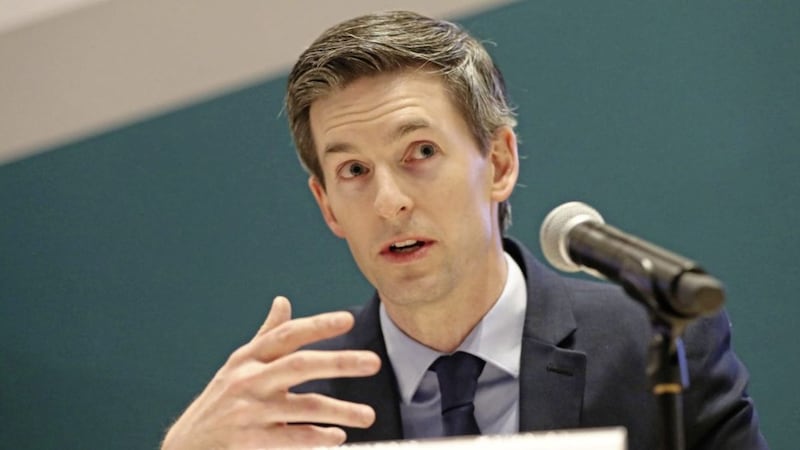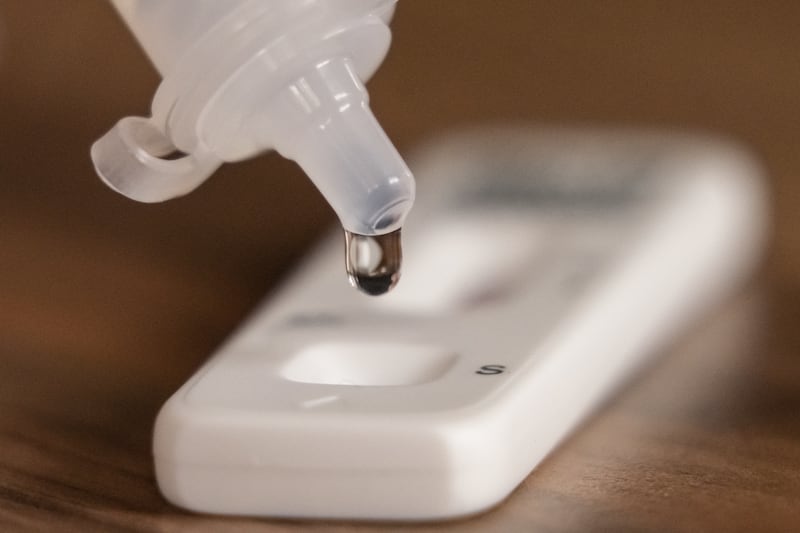A SECONDARY school in Dublin has been closed after its pupils and teachers were confirmed as having been in contact with the state's first coronavirus patient.
The Republic's chief medical officer Dr Tony Holohan announced the move at a press conference in Dublin yesterday.
The closure comes less than 24 hours after authorities confirmed the Republic's first case of Covid-19 - a male living in the east of the country who contracted the virus in one of the affected areas of northern Italy.
Dr Holohan said the male had subsequently been in the school.
It will close for 14 days, the incubation period for the virus, during which all pupils and teachers are being asked to restrict their movements.
Dr Holohan said: "Public health doctors are in direct contact with pupils, their parents and the staff involved."
The case is the second on the island of Ireland. The first involves a woman in Northern Ireland who also contracted the virus in northern Italy.
All pupils and staff will not automatically be tested for the virus, but anyone who presents with symptoms will be.
Dr Holohan said he was choosing not to name what he said was a "large" school in an effort to protect the identity of the patient.
He said there was a lot of misinformation about the virus circulating on social media. He said much of it was not grounded in science.
"We will continue to try to get the message out that this is an illness that we can contain, we can slow the progress of," he said.
Dr Holohan said the evidence showed that for the vast majority of people who contract Covid-19, it is a "mild illness".
The Republic's Department of Education said it was available to assist the school in any way necessary and that all other schools would remain open.
The development came as the Republic's deputy chief medical officer, Dr Ronan Glynn, said the second confirmed case of coronavirus on the island did not change Ireland's risk status. He said the state was prepared if the outbreak worsened.
"We've had one case, there is no evidence of community transmission so far in Ireland," he said.
"It won't be surprising if we have more cases. But the confirmation of the case here, and the case in Northern Ireland in the past number of days, does not change our risk status and does not change our approach."
He added: "I would reiterate again, that the risk to an individual in Ireland at the moment remains low, people should not panic."
Asked about whether large gatherings such as this month's St Patrick's Day events will need to be cancelled, Dr Glynn said officials were still working on criteria, which would be made public in the coming days.
"Clearly there will be events of major or national significance that will require input from public health doctors and medical expertise," he said.
The medical expert said people would not currently be exposing themselves to an increased risk if they attended large public gatherings.
Hours before the confirmed case was announced on Saturday, Government ministers on both sides of the border held talks on how to co-ordinate their response to the coronavirus spread.
Taoiseach Leo Varadkar and Health Minister Simon Harris held a conference call with Stormont First Minister Arlene Foster, Deputy First Minister Michelle O'Neill and Health Minister Robin Swann.
Senior health officials from both jurisdictions were also involved in the discussions, which focused on further north-south co-operation.








